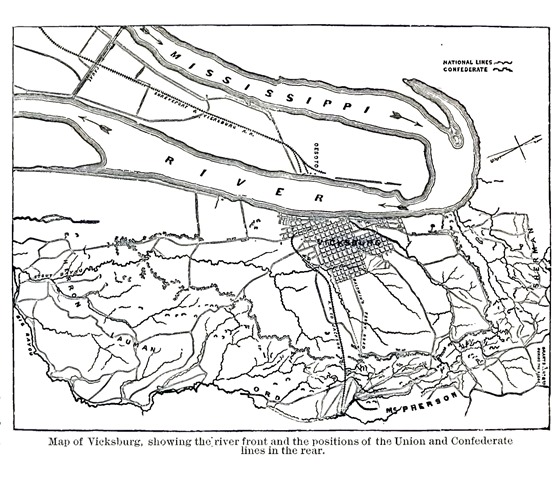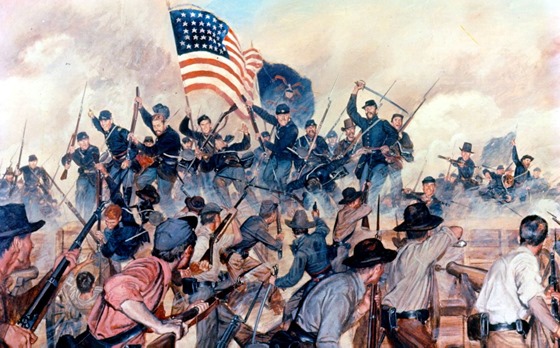May 19. — Left General Benham this morning at about 10 o’clock, and came over to General Reynolds. Saw Lieutenant Egbert, 12th Infantry, and made arrangements for tenting and messing with him. Am with Major Riddle’s mess until our mess gets started. Day warm and pleasant. Saw General Sedgwick in the morning, and told him that I had left General Benham. He told me that I was right in doing what I did on the night of laying the bridges. Saw Charles W[hittier], who was sick.
[A few words of explanation will perhaps be proper, in regard to General Benham and my relations with him while on his staff. General Benham, I believe, graduated first in his class at West Point. He was certainly very high in his class. He was a man of a great deal of brain, but with an inordinate amount of vanity, and exceedingly nervous and irritable. On the evening that we were to lay the bridges, orders had been given to every one to speak in a whisper. Officers were to give their orders in a whisper, and every effort was being made to take the enemy by surprise, with no knowledge of what was intended. General Benham had a canteen, in which he said that he had put two glasses of sherry and had then filled it with water. This was the explanation which he gave us afterwards. At all events, his conduct that evening was most peculiar. He rode down to the bank of the river where the troops were lying on the ground, and rode through them, yelling and screaming and making an awful row. Adjutant-General Channing Clapp and I did not know what to do. General Benham quarrelled with all the general officers and put several of them under arrest, which he had no authority or power to do, and finally, when it got towards daylight, he tumbled off his horse and cut his face very badly. He left the blood to dry on. He finally said, “Come with me, Weld,” and off he started to General Reynolds’s headquarters. He rushed up to the general, who was standing by his horse with his staff, “Hurrah, Josh![1] Hurrah for here and Buena Vista!”
Altogether it was the most embarrassing and unpleasant and disagreeable experience I had ever had in the army. What to do I did not know, neither did Clapp. We tried to keep things as straight as we could, and to have the orders that had been given from headquarters carried out. It finally resulted in my sending in my resignation from his staff. The general first called all his staff together and said he had heard reports that he was intoxicated, and wanted to know what we thought. Every one of us said he was afraid that he had been. He said: “That is impossible. I had but two glasses of sherry in a canteen full of water. It was utterly impossible.” Anyway, the affair was so disagreeable and made everything so uncomfortable, that I decided to leave, and I reported to General Reynolds, and both he and Sedgwick, as I have said in my diary, told me that I had behaved properly and as I ought to have done.]
[1] A nickname of Gen. Reynolds.









